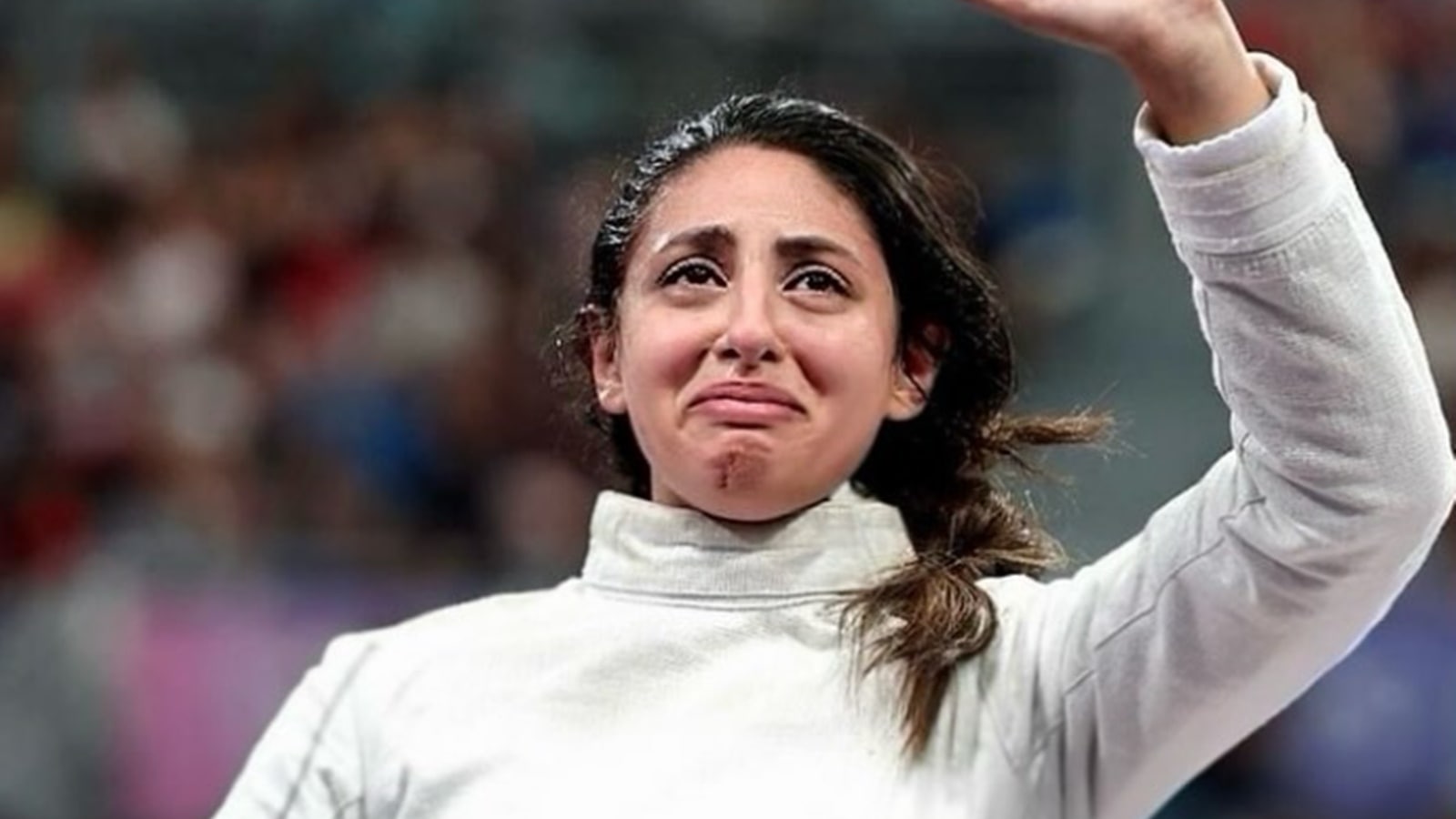Egyptian fencer Nada Hafez recently made headlines after revealing that she competed at the Paris Olympics while she was seven months pregnant. The Cairo-based fencer is a three-time Olympian whose campaign in the women’s saber event at Paris 2024 ended with a defeat to Jeon Hayoung of South Korea.
It was after her loss that she revealed that was pregnant when she competed.
“My baby and I had our fair share of challenges, be it both physical & emotional,” Hafez wrote on Instagram. “The rollercoaster of pregnancy is tough on its own, but having to fight to keep the balance of life and sports was nothing short of strenuous, however worth it. I’m writing this post to say that pride fills my being for securing my place in the round of 16!”
Before we get to whether there are any regulations regarding competing at the Olympics while pregnant, it must be noted that while fencing is derived from sword fighting, the modern-day variation of the sport that is contested on a piste, sees fencers fight using blades of low-carbon steel. And despite the usage of words like “blade” and “weapon”, fencers essentially use metallic sticks to fence.

Fencers also wear plenty of body protection while competing, such as masks which have to pass through 12kg “punch test”, neck bibs which are usually made of Kevlar to resist a force of 1600 Newtons, a fencing jacket, and plastic chest protectors, which are mandatory for women, and are worn under the jacket.
But fencing is also a physically demanding sport where athletes have to display blink-of-an-eye reflexive movements and do movements that constantly test your balance, causing athletes to trip and fall (which could be an issue for someone with a seven-month pregnancy).
So how did a seven-month pregnant athlete compete at the cut-throat level of the Olympics?
The Indian Express reached out to the International Olympic Committee, Paris 2024 Organising Committee and the International Fencing Federation (FIE) to ask whether they have any regulations in place regarding pregnant athletes and if pregnant athletes are asked to fill out any declarations before they can compete in competitions when at an advanced stage of pregnancy.
(For context, airlines like Indigo ask for Fit to Fly certificates from treating obstetrician in case a person’s pregnancy is between the 33rd and 36th week.)
Both Paris 2024 organisers and the IOC stated that it was the FIE who was in charge of deciding eligibility criteria for fencing. The IOC did not directly address a question on whether the IOC has a policy on pregnant athletes competing as the organisers of the Olympics.
“Eligibility criteria for sports, disciplines and events are determined by the respective International Federation for their respective sport. We therefore refer you to the International Federation and National Federation in regard to respective eligibility questions,” IOC told The Indian Express in an email.
The FIE, meanwhile, told The Indian Express: “Neither FIE nor the Egyptian Fencing Federation have any regulations or rules regarding pregnancy and competition.”
“During pregnancy we advice moderate intensity exercises, unless you have some problem like you have bleeding or you’re going to have twins. In the first three months of pregnancy, whatever routine exercises people are doing, we don’t stop them from doing it but we say do it in moderate intensity. Don’t try to do too much. If people want to play a sport like badminton or tennis, we say don’t do the rush, rush tennis. As long as it’s not too much running, it’s fine,” Dr. Asha Dalal, Director of Obstetrics and Gynaecology at Sir H N Reliance Hospital’s Well Woman Center, told The Indian Express. “In the latter trimester, we’ll ask a person to change her sport. It’s very difficult to waddle with a eight-month tummy. But basically, you’re not sick. You’re pregnant. We can’t prevent you from leading a normal life.”



